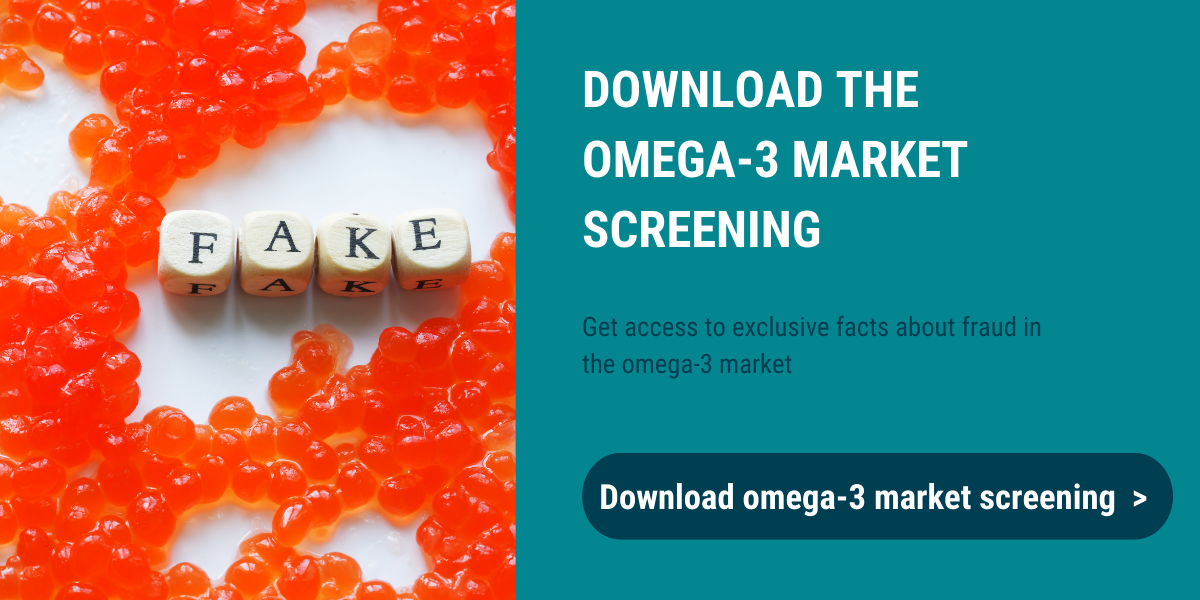Omega-3 supplements are popular due to their potential health benefits, such as reducing inflammation and improving heart health. However, not all omega-3 supplements are created equal, and the quality and reliability of the supply chain can vary widely. This means that it’s essential to conduct due diligence when choosing who to cooperate with when putting together the supply chain for your omega-3 products. Make sure to watch out for these red flags to ensure that you’re getting high-quality, authentic products that are safe and effective.
Suspiciously low pricing
If it seems too good to be true, it probably is. Low prices can indicate that the manufacturer is using lower-quality ingredients and cutting corners in the manufacturing process. Additionally, it could indicate fraudulent practices such as mislabeling or diluting the product. To ensure that you’re getting a high-quality omega-3 supply chain, look for partners or contributors that use pure, high-quality ingredients that have been manufactured in a facility that adheres to strict quality control standards.
High-quality omega-3 supplements require high-quality ingredients and manufacturing processes, so they will be more expensive than lower-quality alternatives.
Lack of traceability data
It is important that you are able to track down and get insight into the whole supply chain to be able to deliver transparency to your customers. Consumers today prefer to make well-informed decisions, and they do more research on their omega-3 products than ever before. This is only one of many reasons why it’s important for you to make sure that you can deliver transparency.
Here are more reasons why tracing the supply chain and source of your omega-3 products is crucial:
- To make sure your product is sustainable. You need to ensure that you are not supporting companies that do not prioritize sustainable sourcing methods and that the ingredients are not shipped across the world for processing before they become an ingredient in your product.
- To make sure to avoid badly processed ingredients. Your raw materials should be as fresh and pure as possible to ensure the best health benefits for your customers.
- To make sure that your omega-3 product is clean and authentic without unnecessary ingredients.
Complex supply chain
Even if you have the ability to track down the supply chain and original source, you should still be concerned if you discover that there are a large number of intermediary links.
- You risk losing control over the supply chain, which will have an impact on the quality and traceability of your omega-3 product.
- It will become difficult to act transparently.
- Most likely, the supply chain is not as sustainable as it might or should be.
Unhealthy financial situation of the contributors in the omega-3 supply chain
When doing an audit of the supply chain, you should always consider the financial health of the contributors. This includes examining balance sheets and profit and loss statements to determine a contributor’s net asset values, the ratio of current assets to both total and current liabilities, and debt.
It’s crucial to look beyond the obvious red flags shown by an organization’s accounts and consider this information in the context of the size of the supply chain deal.
By conducting a thorough supply chain audit and due diligence, you can ensure that you’re choosing a contributor and supplier who are financially stable and committed to providing a high-quality product.
Generic raw material description and lack of origin documentation
Some producers and brands are willing to cut corners on label claims for short-term profits. Promising the consumer something other than what is actually offered is fraud and the opposite of acting transparently, as well as being strictly illegal and potentially harmful for consumers. To avoid this risk, partner up with reputable suppliers and make sure you maintain the integrity of every part of your supply chain.
For assistance in this process, do not hesitate to reach out to a third-party verification provider who can verify your supply chain. By doing so, you also get the opportunity to prove the high quality of your omega-3 products with a verification logo on your products.
To summarize, the omega-3 industry presents a complex supply chain ecosystem, requiring a comprehensive supply chain audit to ensure the selection of trustworthy suppliers and contributors. Watching out for red flags in your supply chain empowers you to make informed decisions, support responsible suppliers, and secure transparency – ultimately ensuring that the omega-3 product you obtain is of premium quality with authentic ingredients that are safe and effective.


